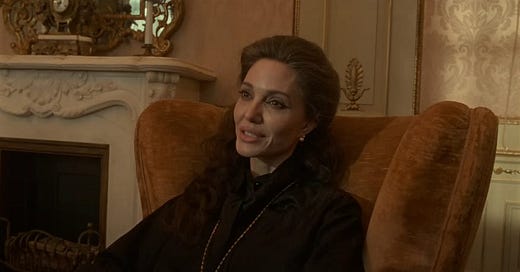Film Review — Maria
Pablo Larraín’s biopic of opera singer Maria Callas proves a disappointment
Critics have mostly praised Angelina Jolie’s lead performance as opera singer Maria Callas in the third of Pablo Larraín’s unofficial trilogy concerning famous 20th-century women. Frankly, I think Jolie has been overpraised in Maria and was far better in the likes of A Mighty Heart (2007) and Changeling (2008). But she is far from the…
Keep reading with a 7-day free trial
Subscribe to The Dillon Empire: Simon Dillon on Substack to keep reading this post and get 7 days of free access to the full post archives.





